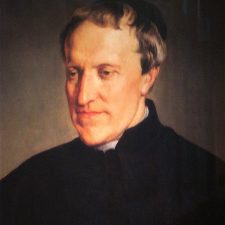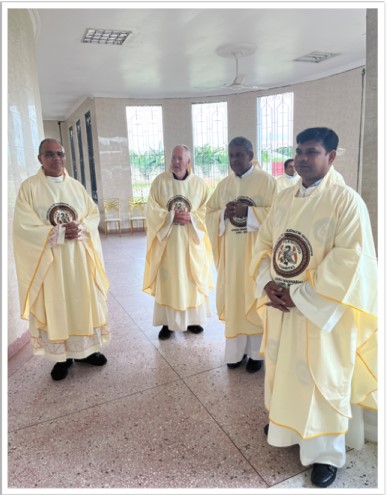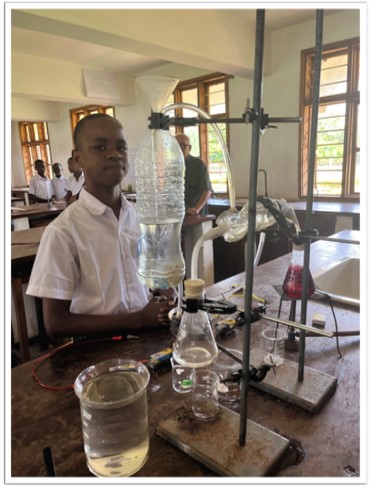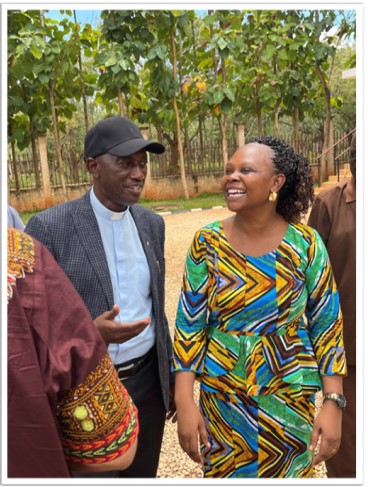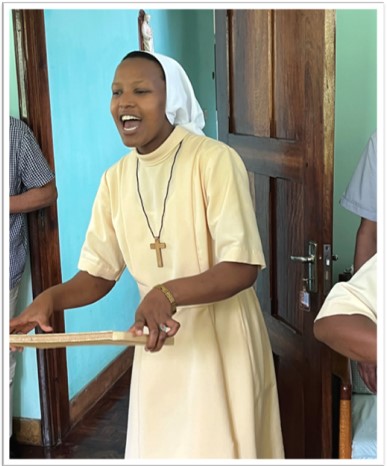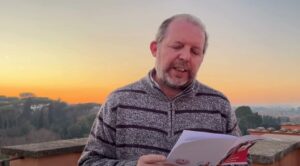International Gathering in Tanzania
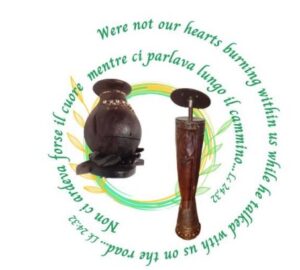
I live mainly in Rome at our Headquarters (Generalate) and International House of Formation at Porta Latina. As the head of the Institute of Charity (Provost General), it’s vital that I visit the various Provinces which make up our Order.
Recently I’ve been in Tanzania which is part of our East Africa Province. I was there because this year I decided to have our annual Major Superiors and Curia meeting outside of Rome. There was quite a team of us enjoying the deep faith and joyfulness of the Tanzania people: 6 Provincials and 3 Curia members, along with some Rosminians Sisters and Usambara Sisters, various other priests and Ascribed (mainly laity who belong to our Rosminian Family).
Mission and Education was the focus of the meeting.
In his encyclical Evangelii Gaudium, Pope Francis reminds us that: Mission is a passion for Jesus and a passion for his people. Rather than being a programme or a plan, it is in the first instance a personal disposition: “I am a mission on this earth” (cf., 268 and 273).
As Religious, we Rosminians shift the ‘I’ am a Mission to “We” are a mission on earth, and that mission is shaped through our Charism and its call to universal charity.
Our communities are the nests of our missions. We reflected together honestly and encouragingly about our life together. Communities and our apostolic works, form an indivisible whole. Each should impact on the other both for the good of the priests and brothers, and for the good of those whom we serve.
So, the more loving we are the more effective will be our mission of charity. Indeed our Father Founder, Blessed Antion Rosmini, writes in our Constitutions: “Greater good can in fact be obtained from the harmonious efforts of many co-workers, directed by a single purpose, than from the same people labouring individually, separately and according to their own discretion. This shows how much our companionship must be loved since it is the means without which that greater good cannot be brought to completion (Constitutions 552).
Many of our communities, in the various countries in which we serve, are now intercultural. The value of intercultural communities should not be reduced to a matter of ‘numbers’ or supply of personnel. It is far richer because intercultural communities manifest the universality of the Church and embody a breadth of cultural insights into our one faith which otherwise would not be present. Intercultural communities fit well with the complexities of ministry in intercultural societies.
One of the great joys of our being together in Tanzania came precisely from the cultural mix of the participants. Our deliberations would have been sadly impoverished were that mix of characters not present. Cultural diversity is a mark and joy of Religious Life.
Precisely for this reason we resolved to implement new ways of inviting young men and women to consider Religious Life. Alongside the Provinces where we are growing in number, we yearn also for more American, English, Irish, Italian, New Zealand, Venezuelan, and Welsh confreres (where we are currently present), indeed from anywhere, and we must continue to pray and work creatively for this.
A concrete decision arising from our meeting was the establishment of an Education Commission. Schools have always been a part of our apostolate and in Tanzania we have five thriving schools, the students and staff of which shared with us their great energy and dedication. It is a sign of the times that I have received several requests to strengthen or re-establish our presence in schools. Fresh thinking is needed as to how the Rosminian Family – Priests, Brothers, Sisters and Ascribed – might respond to these welcome appeals for teachers and Chaplaincies.
Additionally, the provision of contemporary resources which break open our Charism will be another work of the Commission. We spent considerable time reflecting on how we might better communicate our charism – including to young people. Simple summations of our life such as – Rosminians: love without borders (“sans frontières) – serve as a trigger for a deeper understanding of our Charism.
Dear readers, the infectious joy and karibu or welcome of the Tanzanians enkindled in us the deep desire to continue to grow in holiness and purpose. The gift of universal charity is as much needed in our world today as it was in 1828 when Blessed Antonio Rosmini founded our Institute. That gift resides in the heart and head of every one of us.
Thank you for reading this brief reflection of our time in Tanzania. I hope the accompanying photos will enable you to capture something of our spirit.
Blessed Antonio Rosmini, pray for us. And please keep me and our humble Institute in your prayers. May God bless you.
don Marco Tanghetti IC
Provost General
marco.tanghetti@gmail.com
Related Articles
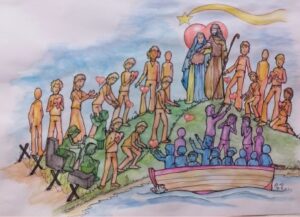
Foot Paths of Hope, Pathways of Peace
Booklet form In Italian Forma Libretto In Spanish Libro

